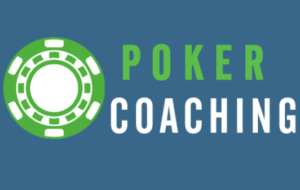







Playing Pocket Aces the Wrong Wayby Jonathan Little | Published: Apr 02, '18 |
 Pocket Aces are by far the most profitable hand in poker, but that does not mean they are always easy to play. Many players consistently make mistakes that lead to them being much less profitable than they should be.
Pocket Aces are by far the most profitable hand in poker, but that does not mean they are always easy to play. Many players consistently make mistakes that lead to them being much less profitable than they should be.
Some novices make the classic mistake of limping with their Aces, hoping someone else raises so they can then make a big 3-bet (re-raise). This is a horrible strategy because unless Hero is making this play with some bluffs, it should be obvious to their opponents that they have an abnormally premium hand. Also, winning a 5 big blind raise almost every time is way less than you will win on average if you simply play your Aces as you would play all your other hands.
Another novice mistake is to make a gigantic raise with Aces, hoping to force the opponents to fold all their junk. In reality, you want your opponents in with their junk because those are the hands you can extract significant value from. If you make your opponents correctly fold, they are not making a mistake. Always keep in mind that you make money when your opponents mess up. Of course, you will get outdrawn some portion of the time, but that is a risk you must be willing to take.
I was recently told about a tricky spot with pocket Aces. In a $500 tournament with blinds at 1,500/3,000, our Hero raised with A-A to 7,000 out of his 65,000 stack from middle position. The player on the button, who is known to be wild, 3-bet to 11,000 (a minimum 3-bet). Everyone folded back to Hero.
At this point, Hero should try to figure out the opponent’s range and general strategy when min-3-betting. If his range is only premium hands (as it will often be from competent players), Hero should go all-in. If he 4-bets small or calls, his opponent may be able to make a fold with Q-Q or A-K on unfavorable flops. If the opponent’s range is all sorts of junk, Hero should instead call because if he 4-bets, his opponent will be tipped off to the fact that Hero likes his hand, resulting in the opponent rarely bluffing after the flop.
Hero decided to 4-bet to 21,000 (10,000 more), leaving 44,000 remaining in his stack.
I strongly dislike this play. Not only has Hero made it obvious that he has a premium hand, he also gave his opponent excellent pot odds to call from in position. The opponent has to put in 10,000 more to win what will be a 51,000 pot, meaning if he realizes his equity 20% of the time, he will break even. If Hero 4-bet even a little bit larger, his opponent would be making an error to call with most of his range. As played, the opponent should likely call with most of his holdings that have some potential.
The flop came Jh-8s-7h. Hero went all-in for 44,000 into the 51,000.
Once Hero 4-bets small before the flop, he should likely go all-in on every flop. Even though this is one of the worst flops for Hero because it should connect well with many of the opponent’s holdings, he should still go all-in unless he is confident the opponent missed and may be inclined to bluff if Hero checks.
The opponent instantly called with Jd-8d, stacking Hero.
In this scenario, while I would have just called the opponent’s min-3-bet before the flop and would have still gone broke, I would have kept my range wide in my opponent’s eyes and given him the chance to bluff with all his junk. As played, Hero forced his opponent to play well, making it nearly impossible for him to make a costly mistake.
 Thank you for taking the time to read this blog post. If you enjoyed it, please share it with your friends. If you want to continue working on your poker skills, be sure to sign up for your free 7-day trial to PokerCoaching.com. There you can test yourself and see how your skills stack up against mine. If you get a perfect score, let me know!
Thank you for taking the time to read this blog post. If you enjoyed it, please share it with your friends. If you want to continue working on your poker skills, be sure to sign up for your free 7-day trial to PokerCoaching.com. There you can test yourself and see how your skills stack up against mine. If you get a perfect score, let me know!
Be sure to check back next week for another educational blog post. Thanks for reading!